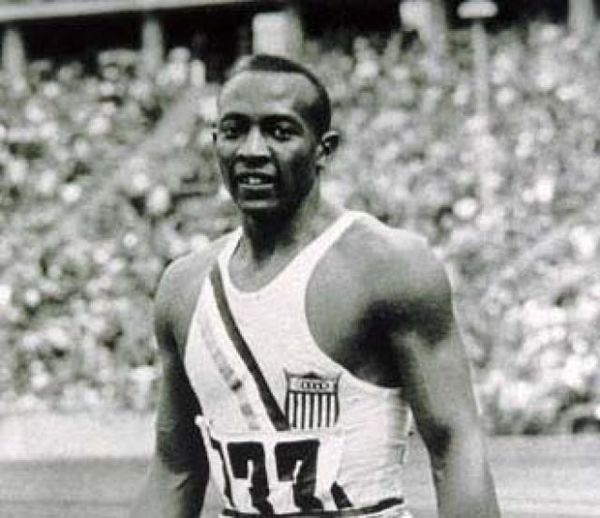1. Jesse Owens (Athletics)
Owens is best known for being a hero of the 1936 Olympic Games, held in Berlin during the rise of Nazi Germany. National leader Adolf Hitler had intended to use the Games as a propaganda platform for demonstrating the strength and superiority of the Aryan “master race” he was trying to create throughout the country, and later across Europe. For an African-American athlete to win gold in four of the most high profile events was truly historic.
The way in which he handled himself with dignity and class throughout is what made Owens a hero to many, and even today he is an inspiration to millions of people around the world.
2. Michael Phelps (Swimmimg)
London 2012 will be the last time we see Phelps in competition in any swimming pool, however even if he wins no gold medals this time, his haul of 14 from the previous two Games’ is a fearsome tally that will be exceptionally difficult to beat.
With a grand total of 16 Olympic medals and 39 world records to his name, Phelps is arguably the greatest swimmer of all time.
3. Sir Steve Redgrave and Sir Matthew Pinsent (Rowing)
Rather than decide between one or the other, it seems only right to put them together, given that many of their staggering achievements came working in tandem. Out of nine gold medals between them, six came when competing together either in the pairs or fours categories of rowing.
Perhaps the most astonishing aspect of their achievements is the timescales involved, with Redgrave winning gold in every games he competed in from 1984 – 2000 inclusive, and Pinsent doing the same from 1992 – 2004.
4. Carl Lewis (Athletics)
Not many athletes sustain a career over 20 years, and even fewer a successful one littered with world records and gold medals along the way. Lewis was very much the prototype for what the modern athlete should be and aim to become, dominating in sprinting and long jumping in a manner similar to Owens had 50 years earlier.
Lewis finished his career with 9 Olympic gold medals to his name.
5. Eric Moussambani (Swimming)
The Olympics is not always about who wins the most gold medals, and never has this been better demonstrated than in the case of Eric “The Eel” Moussambani. Moussambani was Equitorial Guinea’s entrant into the 100m swimming competition in 2000, and gained fame when he was the only competitor in his heat due to disqualification. The Eel had never swam in a 50 metre sized pool before, and struggled to the complete the distance in just under two minutes.
Moussambani’s performance ignited fierce debate over the nature of Olympic competition, and what the Olympic movement truly stood for.
With the London Olympics beginning this summer, the expert how-to website Videojug has created a whole section with fun and informative content for visitors to watch.

